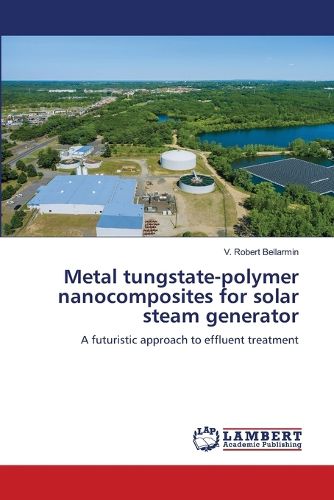Readings Newsletter
Become a Readings Member to make your shopping experience even easier.
Sign in or sign up for free!
You’re not far away from qualifying for FREE standard shipping within Australia
You’ve qualified for FREE standard shipping within Australia
The cart is loading…






This title is printed to order. This book may have been self-published. If so, we cannot guarantee the quality of the content. In the main most books will have gone through the editing process however some may not. We therefore suggest that you be aware of this before ordering this book. If in doubt check either the author or publisher’s details as we are unable to accept any returns unless they are faulty. Please contact us if you have any questions.
In the last two decade, the increasing demand for clean fresh water has become a severe problem which restrain the social and economic development worldwide. With the growing pace of industrialization, the available clean water resources are contaminated by the discharge of effluents containing dye and hazardous organic adulterants which are poising grievous threats to the eco system. Since the conventional technologies available for the eviction of such intractable pollutants required high precision equipment for the post-treatment of sorbent material, a solar-driven steam generator technology emerged for seawater desalination and sewage reusage. Solar-to-steam generator device is constructed using polyurethane sponge on which thin layer of polypyrrole-Iron tungstate nano composite is coated. Though both Polypyrrole and Iron tungstate materials are known to possess excellent broadband light absorption, their combination exhibited improved light absorption ability. Solar-to-heat conversion efficiency noted is 86.9% with evaporation rate 1.2 kg m-2 hr-1 under irradiation of 1 sun, making the design a promising and more practical for interfacial solar vapour generation.
$9.00 standard shipping within Australia
FREE standard shipping within Australia for orders over $100.00
Express & International shipping calculated at checkout
This title is printed to order. This book may have been self-published. If so, we cannot guarantee the quality of the content. In the main most books will have gone through the editing process however some may not. We therefore suggest that you be aware of this before ordering this book. If in doubt check either the author or publisher’s details as we are unable to accept any returns unless they are faulty. Please contact us if you have any questions.
In the last two decade, the increasing demand for clean fresh water has become a severe problem which restrain the social and economic development worldwide. With the growing pace of industrialization, the available clean water resources are contaminated by the discharge of effluents containing dye and hazardous organic adulterants which are poising grievous threats to the eco system. Since the conventional technologies available for the eviction of such intractable pollutants required high precision equipment for the post-treatment of sorbent material, a solar-driven steam generator technology emerged for seawater desalination and sewage reusage. Solar-to-steam generator device is constructed using polyurethane sponge on which thin layer of polypyrrole-Iron tungstate nano composite is coated. Though both Polypyrrole and Iron tungstate materials are known to possess excellent broadband light absorption, their combination exhibited improved light absorption ability. Solar-to-heat conversion efficiency noted is 86.9% with evaporation rate 1.2 kg m-2 hr-1 under irradiation of 1 sun, making the design a promising and more practical for interfacial solar vapour generation.